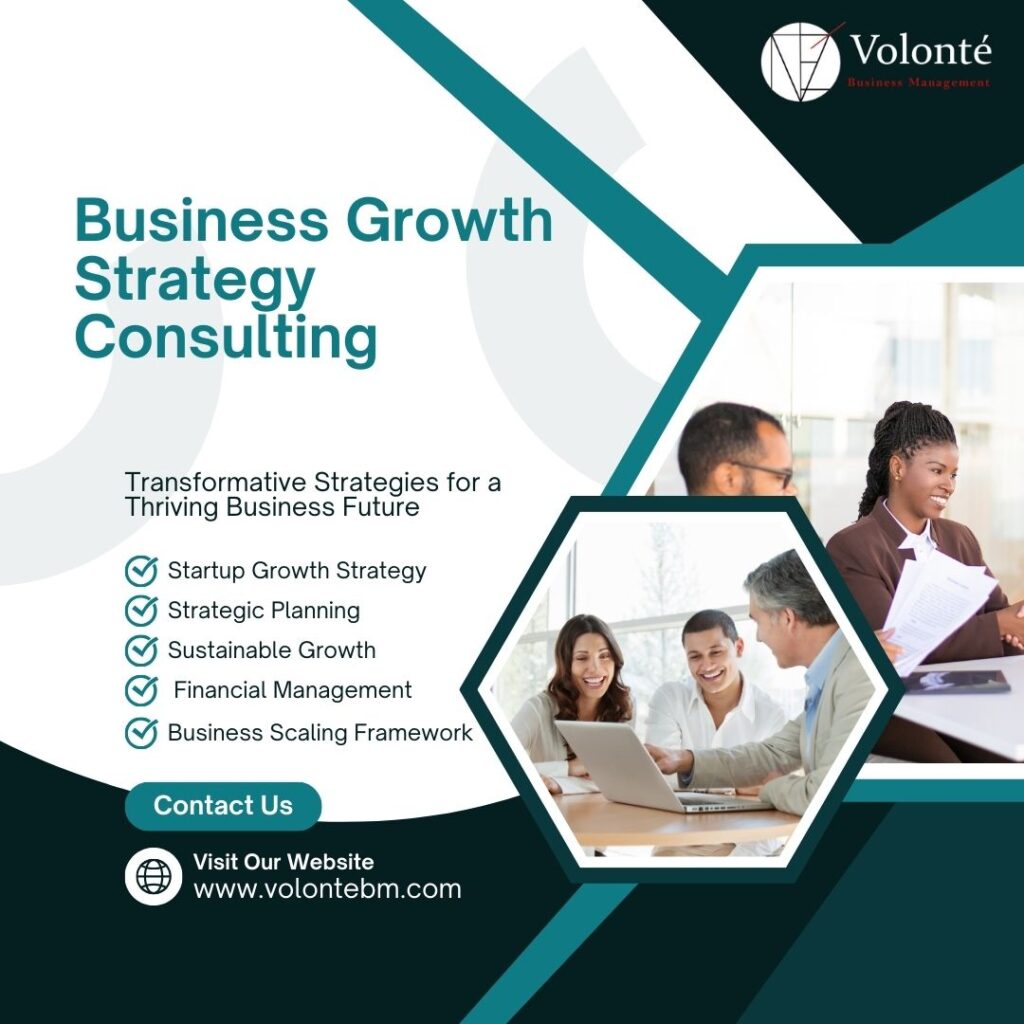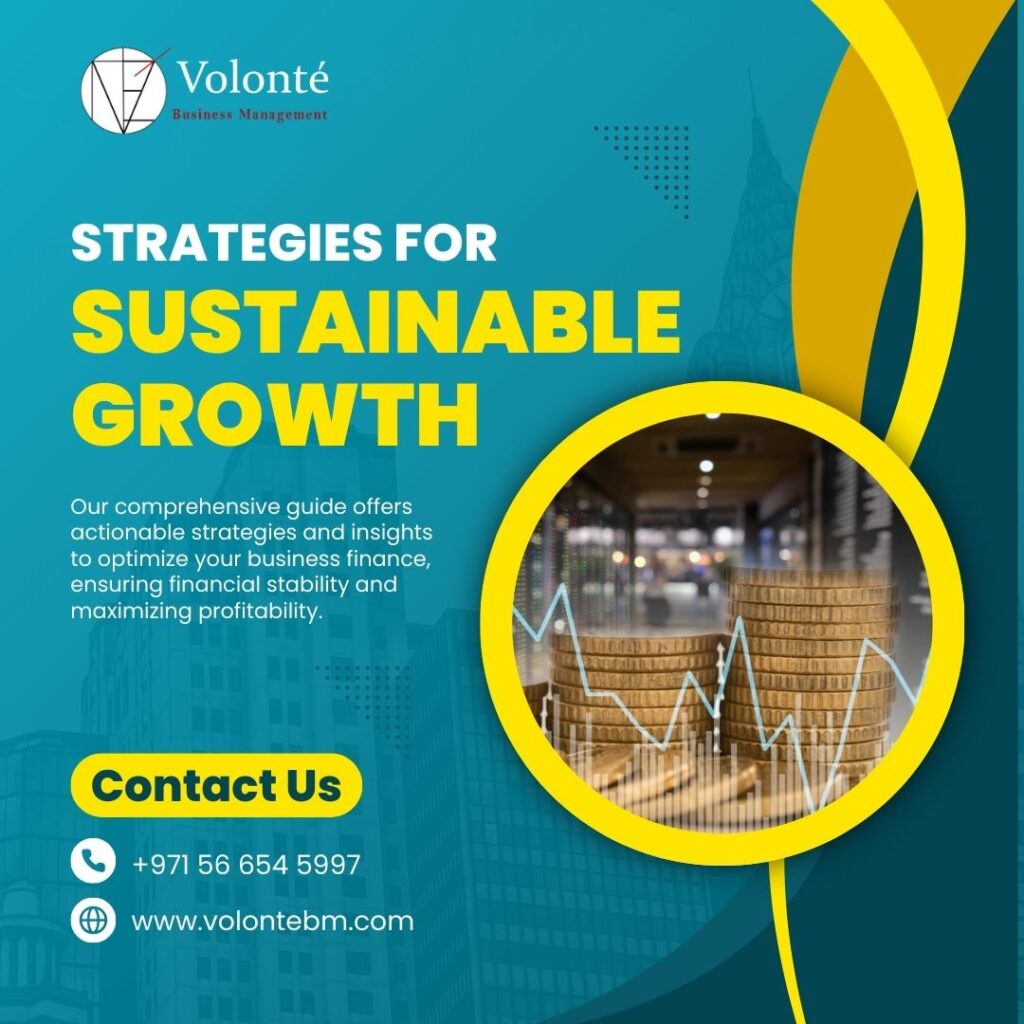Building for the Future: How to Achieve Sustainable Business Growth in Dubai

Starting a business in Dubai is exciting, but keeping it running for years takes careful planning. Many companies open with big ambitions but struggle to stay profitable after the first few years. High competition, rising costs, and poor financial decisions often lead to early closures. The key to sustainable business growth in Dubai is knowing how to manage money, adapt to market changes, and build strong business relationships. Let’s go through what helps a company grow while staying strong. Start the Right Way A business needs a strong base before thinking about growth. Many fail because they try to expand too fast without setting things up properly. Fact: More than half of new businesses shut down in three years because they do not plan well or understand the market. Control Spending and Keep Cash Flow Steady Many businesses fail not because they are bad but because they run out of money. Keeping track of spending is key to sustainable business growth in Dubai. -Avoid spending too much early on – Rent, hiring, and advertising should match what the business can afford, not what it hopes to make. Use Technology to Work Smarter Technology makes it easier for businesses to run smoothly without hiring too many people or spending too much. Companies that use the right tools can avoid extra costs and mistakes. Automate daily tasks – Software can help with invoicing, customer support, and scheduling, saving time and effort. Have a strong online presence – A good website and social media can attract more customers without spending too much on marketing. Use cloud storage – Storing files online is safer and allows teams to work from anywhere. Many businesses work with tech startup consulting in Dubai to find the best technology for their needs. Build Strong Business Connections In Dubai, having the right connections can open doors to new opportunities. Many businesses grow faster when they collaborate with the right people, whether it’s investors, partners, or industry experts. Attending major business events like GITEX and STEP can be a great way to meet decision-makers and potential clients. Another effective way to expand business connections is by joining professional networks. Such organizations help businesses connect with potential partners, clients, and mentors who can offer guidance and support. For startups, working with experienced advisors can make a big difference. Many new businesses seek startup consulting in Dubai to gain insights from experts who understand the market, legal requirements, and the challenges of scaling a business in the region. Make Sustainability a Part of the Business Dubai is investing in green energy and eco-friendly practices. Businesses that follow these trends can save costs and attract more customers. Final Thoughts: Growing a Business That Lasts Starting a business in Dubai is easy, but keeping it running for years takes smart planning. Companies that grow at the right pace, control their spending, use technology, and build strong networks have a better chance of lasting success. For those looking to expand their business the right way, getting the right advice can make a big difference. Volonte BM helps companies build strong foundations and grow steadily over time.
From Idea to Expansion: Mastering Startup Growth Strategy in Dubai

Dubai is a prime destination for startups, drawing entrepreneurs with its tax benefits, business-friendly policies, and gateway to global markets. With over 94% of businesses in Dubai being SMEs, opportunities are vast—but so is the competition. Having a clear startup growth strategy in Dubai is essential to transform an idea into a successful venture. In this article, let’s break it down to understand how to build a strong startup growth strategy. Validate Your Idea Before Scaling One of the biggest reasons startups fail? Expanding too quickly without knowing if the market wants their product. Dubai’s business environment allows startups to test ideas quickly, but diving in without proper research can lead to wasted money and effort. Startups that properly test their idea before scaling are three times more likely to last beyond five years. Secure Funding & Government Support Dubai provides several funding programs to help new businesses grow: Besides government backing, private investors are actively searching for promising startups. Two years back, Dubai startups secured over $1.8 billion in investment, making it a great place to find funding. Keep Your Cash Flow Healthy Even a great business idea can fail if money runs out. Startup cash flow optimization in Dubai is about smart spending and financial planning. Managing money wisely ensures that every spent is used effectively. Grow Your Tech Startup the Smart Way For tech startups, scaling isn’t just about more customers—it’s about having the right systems in place. Scaling tech startups in Dubai means using modern tools to make growth easier. Building the right digital setup prevents problems as your business grows. Build Your Network & Brand Connections matter in Dubai. The right network can lead to funding, partnerships, and valuable business opportunities. The right relationships can open doors that traditional marketing cannot. Final Thoughts: Work with Experts to Execute Your Plan A good idea alone won’t build a successful business—taking action will. A well-planned startup growth strategy in Dubai involves securing funding, managing cash flow, using smart tech solutions, and building strong connections. Having the right support can make all the difference. Want expert help to grow your business in Dubai? Contact Volonte BM and take the next step today!
Growth Strategy Validation in Dubai: Key Steps for Business Success

There’s nothing better than launching a start-up. Yet, what can change from a successful concept to absolute failure happens way too often. Growth strategy validation is required to create the correct intentions. It is everything from the financials to the nitty-gritty. It sets the foundation for a structured expansion and makes continued viability easy. Not validating your potential growth opportunity means you’re using it at great risk and wasting valuable time and money on options that won’t succeed, and therefore, making good decisions in the future. Steps for Validating Effective Growth Strategies With the validation of their strategy, enterprises can concentrate on opportunities that can deliver the greatest possible success since such a methodology helps them obtain an advantageous competitive edge over various firms in their marketplace. The Role of Financial Management in Growth Startup financial management is important for any business that can grow. It’s linked to cash flow, scalability, and future plans. For new businesses, financial management means you can implement your growth strategies while still operating within safe financial means. Key Financial Strategies for Startups: When finances are settled, there’s no undue risk taken for the growth of a company. Ensuring Sustainable Business Growth If your project is going so well that it seems like it’s going a bit too well, too fast, then find a way to evaluate whether it can be scaled back and still meet final deliverables. Growing at a rate that your operations, finances, and market can sustain means sustainable growth. Principles of Sustainable Growth: Companies that have access to ethically sustainable growth opportunities are more likely to be successful in the future; they’re more adaptable and may be able to attain growth success in the future. How These Elements Work Together Growth strategy, validation, financial management, and sustainability are interlinked. Combining these three pillars provides the business with a good base to grow from: Actionable Tips for Business Owners Great ideas are not enough to succeed in business. That’s all there is to it. A proven growth plan, some key financial controls, and an interest in allocating the resources necessary to this controlled sustainable growth endeavor. You’ll have a booming operation by controlling it and guaranteed sustainable success for your operation long into the future. Looking for expert advice on growth strategy validation and business success? Check out Volonte BM to find out how their expertise will help you scale efficiently and sustainably.
Unlocking Startup Potential: Consulting, Strategy, and Sustainable Growth

In the competitive world of startups, achieving success requires more than a groundbreaking idea—it demands strategic planning, operational efficiency, and expert guidance. Whether you’re a tech entrepreneur or a traditional business founder, services like startup consulting in Dubai, growth strategy consulting, and business bottleneck elimination can help transform challenges into opportunities. Let’s explore how these essential elements can help startups scale, optimize, and thrive. The Role of Startup Consulting in Driving Success Startup consulting provides expert insights and tailored solutions to help businesses address challenges and seize growth opportunities. From early-stage guidance to scaling support, startup consultants play a pivotal role in navigating the complexities of entrepreneurship. Key Benefits of Startup Consulting: Strategic Focus: Develop a clear roadmap for sustainable growth. Problem-Solving Expertise: Identify and resolve operational inefficiencies. Scalable Solutions: Build frameworks that support long-term expansion. Startup consultants not only offer advice but also help implement solutions, ensuring measurable results. Growth Strategy Consulting: A Game-Changer for Startups Scaling a business requires a deliberate approach. Growth strategy consulting helps startups create actionable plans to achieve their expansion goals while avoiding common pitfalls. Key Components of Growth Strategy Consulting: Market Research: Understand target audiences and emerging trends. Goal Alignment: Define clear, realistic objectives for growth. Execution Framework: Develop step-by-step plans to ensure success. With the right growth strategy, startups can achieve rapid yet sustainable business growth. Tech Startup Consulting: Addressing Unique Challenges For tech-based businesses, the journey to scalability comes with its own set of challenges. Tech startup consulting provides specialized expertise to help companies innovate, adapt, and thrive in a competitive landscape. Why Tech Startups Need Consulting: – Scalability Solutions: Build systems that can handle rapid growth. – Market Expansion: Identify opportunities for product and service innovation. – Operational Optimization: Streamline processes for maximum efficiency. Tech startup consultants bridge the gap between technological capabilities and business needs, ensuring startups can scale effectively. Business Bottleneck Elimination in Dubai: Clearing the Path for Growth Operational bottlenecks are one of the most common barriers to success. Effective business bottleneck elimination in Dubai ensures that your startup operates at peak efficiency, laying the groundwork for scalable growth. Common Bottlenecks and Solutions: Resource Limitations: Optimize allocation of time, budget, and manpower. Process Inefficiencies: Automate repetitive tasks to save time and reduce errors. Scaling Challenges: Develop frameworks to support growing operations. Eliminating bottlenecks helps startups focus on innovation and customer satisfaction, key drivers of sustainable business growth. Financial Management for Startups: Building Stability Strong startup financial management ensures that your business has the resources it needs to grow. From cash flow monitoring to cost control, effective financial strategies are critical for achieving long-term goals. Conclusion The combination of startup consulting, tech startup consulting, growth strategy consulting in Dubai, and business bottleneck elimination can transform any startup into a thriving enterprise. By addressing challenges head-on and leveraging expert guidance, startups can unlock their full potential and achieve sustainable business growth.
The Blueprint for Startup Success: Growth Strategy Validation, Financial Management, and Sustainable Growth in Dubai

Building a startup is an exhilarating journey, but achieving long-term success requires more than a great idea. It demands a robust framework for growth strategy validation in Dubai, effective startup financial management, and a commitment to sustainable business growth in Dubai. In this article, we’ll explore how these three pillars work together to create a roadmap for entrepreneurial success. Why Growth Strategy Validation Is Essential Every startup begins with a vision but transforming that vision into reality requires a well-thought-out growth strategy. Growth strategy validation ensures that your plans are practical, achievable, and aligned with market needs. This step minimizes risks and maximizes the potential for success. Steps for Effective Growth Strategy Validation: Define Your Goals: Clearly articulate what success looks like for your startup. Assess Market Demand: Use data to validate the need for your product or service. Test Scalability: Ensure your business model can handle growth without losing efficiency. Gather Stakeholder Feedback: Involve team members, investors, and customers in refining your strategy. Growth strategy validation helps you focus your resources on initiatives that offer the greatest potential for success, giving your startup a competitive edge. Mastering Startup Financial Management Financial stability is the backbone of any successful business. For startups, effective financial management is crucial for navigating the challenges of scaling, maintaining cash flow, and investing in growth opportunities. A strategic approach to startup financial management allows founders to make informed decisions that support both short-term needs and long-term goals. Key Components of Financial Management for Startups: Cash Flow Management: Monitor and optimize the flow of money in and out of your business. Cost Control: Identify areas where you can reduce expenses while maintaining quality. Revenue Planning: Diversify income streams to reduce dependency on a single source. Funding Strategies: Secure investments or loans that align with your growth plans. By managing your finances effectively, you ensure that your startup has the resources to implement its validated growth strategy and pursue sustainable expansion. Building a Path to Sustainable Business Growth in Dubai While rapid growth might seem appealing, sustainability is the key to long-term success. Sustainable business growth focuses on expanding at a pace that your operations, finances, and market can support. This approach minimizes the risks of overextension and creates a resilient business model. Principles of Sustainable Growth: Customer-Centric Approach: Focus on delivering consistent value to retain loyal customers. Scalable Systems: Build infrastructure and processes that grow with your business. Continuous Improvement: Adapt to market changes and innovate regularly. Social Responsibility: Integrate ethical and sustainable practices into your operations. Sustainable growth ensures that your startup remains competitive and relevant, even as market conditions evolve. The Interconnection Between Strategy, Finance, and Growth in Dubai A successful startup strategy in Dubai requires aligning growth strategy validation, startup financial management, and sustainable business growth. These elements are interconnected and mutually reinforcing. – Validated Strategies Drive Financial Success: A clear and validated growth plan provides a roadmap for financial investments and resource allocation. – Financial Stability Enables Sustainability: Proper financial management ensures the resources needed to implement sustainable practices and scale operations. – Sustainability Enhances Strategic Outcomes: Businesses that prioritize sustainability build stronger customer trust and brand loyalty, fueling long-term growth. Practical Tips for Entrepreneurs Leverage Technology: Use tools to streamline financial management and strategy validation processes. Focus on Metrics: Regularly track KPIs to measure progress and make data-driven decisions. Seek Expert Advice: Engage consultants or mentors for guidance on growth strategies and financial planning. Balance Risk and Opportunity: Avoid overextending resources while pursuing new growth opportunities. The Competitive Advantage of an Integrated Approach Startups that align their growth strategy validation, startup financial management, and sustainable business growth efforts have a distinct advantage in the marketplace. This integrated approach ensures that resources are used efficiently, risks are minimized, and opportunities for long-term success are maximized. Conclusion Creating a successful startup requires a strategic focus on growth strategy validation, effective startup financial management, and a commitment to sustainable business growth. By aligning these critical areas, you build a resilient business that is prepared to thrive in the competitive landscape. Take the time to validate your growth strategy, manage your finances with precision, and prioritize sustainability. These efforts will not only set your startup on the path to success but also ensure that your business grows responsibly and remains impactful for years to come.
Achieving Sustainable Business Growth in Dubai: The Importance of Strategy and Financial Management

In the dynamic world of startups, sustainable business growth is more than just a buzzword; it’s the ultimate goal. However, achieving this requires more than enthusiasm—it demands meticulous planning, sound financial management, and rigorous growth strategy validation. Whether you’re in the initial stages of your venture or scaling operations, understanding these key elements is crucial to ensuring long-term success. The Role of Growth Strategy Validation in Business Success A growth strategy validation process ensures that your plans are not only ambitious but also realistic and actionable. Without this critical step, even the most innovative ideas can falter due to unforeseen challenges. By validating your strategy, you align your goals with market conditions, customer needs, and internal capabilities. Steps for Effective Growth Strategy Validation: Market Analysis: Assess the demand for your product or service. Competitive Benchmarking: Understand how you compare to competitors. Feasibility Testing: Evaluate whether your resources can support your goals. Customer Feedback: Gather insights to refine your approach. Growth strategy validation is not a one-time task—it’s an ongoing process. Regularly revisiting and refining your strategy ensures that your business remains agile and responsive to changes. Startup Financial Management: Building a Strong Foundation Financial management is the backbone of any successful startup. Poor financial planning can lead to cash flow problems, resource misallocation, and ultimately, business failure. Mastering startup financial management enables founders to make informed decisions, maintain stability, and invest wisely for growth. Key Principles of Startup Financial Management: Cash Flow Monitoring: Regularly track your income and expenses to avoid shortfalls. Budgeting: Allocate funds strategically to prioritize high-impact areas. Revenue Diversification: Explore multiple income streams to reduce risk. Cost Control: Identify areas where you can reduce expenses without compromising quality. Sound financial management not only supports daily operations but also strengthens your ability to scale effectively, paving the way for sustainable business growth. Sustainable Business Growth: The Long-Term Vision Startups often focus on rapid expansion, but true success lies in achieving sustainable business growth. This means growing at a pace that your operations, finances, and market can support, ensuring longevity and resilience. Pillars of Sustainable Business Growth: Scalable Operations: Build systems and processes that can handle increased demand. Customer Retention: Focus on long-term relationships rather than one-time sales. Innovation: Continuously improve your offerings to stay relevant in the market. Ethical Practices: Incorporate environmental, social, and governance (ESG) principles to build trust and loyalty. By balancing ambition with practicality, sustainable growth ensures that your startup thrives in the long term, not just in the short term. Aligning Strategy, Finance, and Sustainability To achieve lasting success, startups need to align their growth strategy validation, startup financial management, and sustainable business growth efforts. Here’s how these elements work together: – Validated Growth Strategies Drive Financial Decisions: A well-validated strategy provides a clear roadmap, enabling precise financial planning and resource allocation. – Financial Stability Supports Sustainability: Strong financial management ensures you have the resources to invest in sustainable practices and scalable operations. – Sustainability Enhances Strategy and Financial Outcomes: Building a sustainable business attracts loyal customers and investors, fueling both strategic and financial growth. Practical Tips for Startups Invest in Financial Tools: Use software to automate budgeting, forecasting, and cash flow monitoring. Test and Iterate Your Strategies: Continuously refine your approach based on data and feedback. Balance Growth and Stability: Avoid overextending your resources in pursuit of rapid expansion. Engage Experts: Consider consulting with professionals for growth strategy validation and financial planning. The Competitive Advantage of a Holistic Approach Startups that integrate growth strategy validation, startup financial management, and sustainable business growth gain a significant edge over their competitors. They are better equipped to navigate challenges, adapt to market changes, and build lasting success. Conclusion Achieving sustainable business growth is not about shortcuts or quick wins—it’s about laying a solid foundation through growth strategy validation and effective startup financial management. By aligning your strategies, finances, and sustainability goals, you create a business that not only grows but thrives. Take the time to validate your strategy, manage your finances prudently, and prioritize sustainable practices. With this holistic approach, your startup will be well on its way to long-term success.
Mastering the Art of Scaling Tech Startups in Dubai: A Guide to Accelerated Growth

Scaling a startup is both an exciting and challenging journey. To ensure success, entrepreneurs need a robust startup growth strategy, a clear personalized growth plan, and an actionable business scaling framework. By focusing on critical areas like cashflow and operations optimization, founders can create a roadmap for sustainable expansion. In this guide, we’ll explore proven strategies and essential steps for scaling tech startups and achieving long-term success. The Foundation of a Startup Growth Strategy A startup growth strategy serves as the blueprint for scaling your business. It outlines how to expand operations, acquire new customers, and increase revenue while maintaining quality and efficiency. With a strong strategy in place, startups can focus on long-term objectives while adapting to market dynamics. Key Elements of a Startup Growth Strategy: Market Positioning: Understand where your product or service fits in the market. Customer Insights: Leverage data to meet customer needs effectively. Scalable Systems: Build processes that grow with your business. Scaling Tech Startups: The Road to Success Tech startups face unique challenges, including rapid innovation cycles, technological shifts, and intense competition. A tailored business scaling framework helps founders address these hurdles and establish a solid foundation for growth. Steps to Scale Tech Startups: – Invest in Technology: Upgrade infrastructure to handle increased demand. – Expand Market Reach: Leverage digital marketing to tap into new audiences. – Strengthen Your Team: Hire top talent to support critical operations. Scaling tech startups isn’t just about growth; it’s about growing efficiently. Every decision should align with your personalized growth plan, ensuring that your startup remains agile and competitive. Startup Cashflow Optimization: The Engine of Growth Growth demands resources, and effective startup cashflow optimization ensures you have the financial flexibility to seize opportunities. Poor cash flow management is one of the primary reasons startups fail, making it essential to prioritize this aspect. Strategies for Optimizing Cashflow: Budget Wisely: Allocate resources to high-impact areas. Negotiate Payment Terms: Work with suppliers and clients to improve cash cycles. Explore Funding Options: Secure investments or loans to fuel growth. By keeping a close eye on your cash flow, you’ll have the financial stability needed to support your startup growth strategy and execute your business scaling framework effectively. Startup Operations Optimization: Enhancing Efficiency As your startup grows, optimizing operations becomes critical. Startup operations optimization ensures that your business runs smoothly, reducing inefficiencies and improving overall productivity. Best Practices for Operations Optimization: – Automate Processes: Use technology to streamline repetitive tasks. – Refine Workflows: Identify bottlenecks and implement solutions. – Monitor Metrics: Track performance indicators to measure success. Efficient operations form the backbone of your personalized growth plan, enabling you to focus on strategic growth without getting bogged down by day-to-day challenges. Strategic Growth Planning: Aligning Vision with Action Scaling tech startups requires meticulous strategic growth planning to align your vision with actionable steps. A comprehensive plan not only defines your goals but also maps out how to achieve them. Components of Strategic Growth Planning: Goal Setting: Establish clear, measurable objectives. Market Research: Understand your competitors and industry trends. Execution Strategy: Develop a timeline with key milestones. Strategic planning ensures that every action contributes to the larger vision, making your startup growth strategy more cohesive and impactful. Founder Consultation Services: Expert Support for Founders Scaling a startup can be overwhelming, but founder consultation services provide the guidance needed to navigate this complex journey. Expert consultants offer customized advice to help you implement your business scaling framework and tackle specific challenges. Benefits of Founder Consultation Services: – Gain insights from experienced professionals. – Access tailored solutions for your unique needs. – Save time and resources with proven strategies. By partnering with experts, founders can fast-track their growth while avoiding common pitfalls. The Holistic Approach to Scaling Startups The journey of scaling tech startups involves multiple moving parts. A comprehensive startup growth strategy, combined with a robust personalized growth plan, lays the groundwork for success. By focusing on startup cashflow optimization and startup operations optimization, you create a stable foundation to support growth. Investing in strategic growth planning and leveraging founder consultation services ensures that your efforts are directed towards meaningful outcomes. With the right tools and guidance, scaling your startup becomes a manageable and rewarding process. Conclusion Scaling your startup is a challenging but rewarding endeavor. A well-rounded approach—rooted in a clear startup growth strategy, a customized business scaling framework, and actionable plans—can lead to sustainable success. By prioritizing areas like startup cashflow optimization, startup operations optimization, and strategic growth planning, you’ll create a roadmap for long-term growth. Don’t navigate this journey alone—partner with experts through founder consultation services to unlock your startup’s full potential. Start scaling smartly, efficiently, and strategically to achieve your vision.
Unlocking Success: Your Comprehensive Guide to Startup Growth Strategy

In today’s fast-paced business environment, having a robust startup growth strategy is the cornerstone of success for scaling tech startups. Whether you are in the early stages or looking to take your business to the next level, a personalized growth plan and a well-designed business scaling framework can make all the difference. Here’s everything you need to know about scaling effectively, optimizing cash flow, and streamlining operations for sustained growth. The Importance of a Tailored Startup Growth Strategy Every business is unique, and so should be its growth strategy. A personalized growth plan considers your startup’s specific goals, industry, and challenges, ensuring a roadmap that aligns with your vision. By leveraging tailored strategies, you can unlock new opportunities and navigate the complexities of scaling tech startups. Scaling Tech Startups: Overcoming Challenges Tech startups often face unique hurdles, from managing rapid innovation cycles to staying ahead of competitors. A proven business scaling framework provides a structured approach to overcoming these challenges. It focuses on key areas like team expansion, market penetration, and technology upgrades to fuel growth. Benefits of a Business Scaling Framework: Structured Growth: Ensures your expansion is sustainable and efficient. Risk Mitigation: Identifies and addresses potential bottlenecks early. Enhanced Efficiency: Streamlines processes for better resource utilization. Startup Cashflow Optimization: Fueling Growth Sustainably A strong focus on startup cashflow optimization is vital for long-term success. Scaling tech startups often require significant investment, and optimizing cash flow ensures you have the resources to seize growth opportunities. Strategies like cost management, revenue forecasting, and securing external funding can keep your finances on track. Tips for Startup Cashflow Optimization: – Monitor expenses rigorously to avoid overspending. – Prioritize high-impact investments that drive growth. – Diversify revenue streams to reduce financial risks. Startup Operations Optimization: Building a Solid Foundation Efficient operations are the backbone of a growing startup. Startup operations optimization focuses on streamlining workflows, enhancing productivity, and leveraging technology to reduce inefficiencies. An optimized operation allows you to scale faster without compromising quality or customer satisfaction. Steps to Optimize Startup Operations: Evaluate Current Processes: Identify bottlenecks and areas for improvement. Leverage Automation: Invest in tools that simplify repetitive tasks. Train Your Team: Ensure employees are equipped with the skills to adapt to growth. Strategic Growth Planning: The Key to Scaling Scaling tech startups requires meticulous strategic growth planning. This involves analyzing market trends, defining clear objectives, and outlining actionable steps to achieve them. A solid plan ensures that every decision you make supports your overarching business goals. Components of Strategic Growth Planning: – Market Research: Understand your target audience and competitors. – Goal Setting: Define measurable objectives for short- and long-term growth. – Execution Roadmap: Create a timeline with milestones and KPIs. Founder Consultation Services: Expert Guidance for Success For many entrepreneurs, navigating the complexities of scaling can be daunting. Founder consultation services offer personalized advice and mentorship to help you make informed decisions. Expert consultants can assist with everything from crafting your startup growth strategy to implementing your business scaling framework effectively. Advantages of Founder Consultation Services: – Access to industry expertise and insights. – Customized solutions tailored to your startup’s needs. – Support in overcoming specific growth challenges. Why Every Startup Needs a Growth Strategy Scaling tech startups without a defined growth strategy is like setting sail without a map. By focusing on startup cashflow optimization, startup operations optimization, and strategic growth planning, you set the stage for success. A personalized growth plan and expert founder consultation services can guide you through every step of the journey. Conclusion A well-rounded startup growth strategy is essential for scaling tech startups and achieving sustainable success. From crafting a personalized growth plan to implementing a proven business scaling framework, every aspect of your approach matters. By prioritizing startup cashflow optimization and startup operations optimization, you create a strong foundation for strategic growth. Invest in founder consultation services today to unlock your startup’s full potential and take your business to new heights. With the right plan in place, the journey to success becomes not just achievable but inevitable.
How does working with management consultants helps clients avoid wrong investments

Individuals often need expertise and guidance when making decisions about business investments, particularly when the investment involves a large amount of capital. Hiring management consultants can provide clients with reliable advice to ensure that they don’t make wrong investments. Management consultants understand the complexities of the market and have significant experience in analyzing investments from different angles, which enables them to offer insightful direction for their clients. They can provide information on the potential risks associated with a particular investment and help clients make more informed decisions by thoroughly examining different scenarios from financial, technical, and operational perspectives. Furthermore, they can also identify cost-saving opportunities that may not be immediately apparent to the client. By engaging management consultants for their investments, clients have access to an experienced and knowledgeable team that can provide objective advice and guide them in the right direction. This helps them reduce the risk of making wrong investments and maximize their returns. Additionally, management consultants can also advise clients on the best strategies to pursue for their investment goals. From creating a detailed action plan to addressing potential problems that may arise, they are able to provide comprehensive support and expertise throughout the investment process. They can even create customized solutions to fit the needs of each individual client, ensuring that they get the most out of their investment. By leveraging their expertise and experience, management consultants help clients make better decisions and avoid wrong investments. Working with management consultants provides clients with a reliable source of information and advice to make informed decisions on their investments and maximize their returns. They can provide detailed analyses, comprehensive support, and customized solutions to fit the needs of each individual client. This enables clients to reduce potential risks associated with investments and increase the chances of successful outcomes. With the help of management consultants, clients can be assured that their investments are in good hands.
Effective Strategies for Problem Solving in Business

Business problems are an integral part of any organization, irrespective of its size or industry. From small startups to large corporations, every business faces challenges that require effective problem-solving strategies to overcome them and achieve success. In today’s fast-paced and competitive business landscape, having the ability to solve problems efficiently is crucial for achieving growth and sustaining long-term success. In this document, we will discuss some effective strategies for problem solving in business that can help organizations overcome challenges and achieve their goals. Identifying the Root Cause The first step towards effective problem-solving is identifying the root cause of the problem. Often, businesses tend to address symptoms rather than addressing the underlying issue, which only offers temporary solutions. By identifying the root cause, businesses can develop a more comprehensive and permanent solution to the problem. This requires a thorough analysis of the problem, understanding its different aspects, and identifying potential contributing factors. Collaborating with Team Members Problem solving in business is not a one-person task. It requires collaboration and teamwork to come up with effective solutions. Different team members bring diverse perspectives and ideas to the table, which can help in identifying the root cause and finding innovative solutions. Effective communication and teamwork play a crucial role in successful problem-solving. Utilizing Data and Information Data is the backbone of effective problem solving in business. It provides valuable insights into the problem, helps in understanding its complexity, and enables businesses to make data-driven decisions. Analyzing data from various sources, such as customer feedback, sales reports, and market trends, can help in identifying patterns and trends that contribute to the problem. This allows businesses to make informed decisions and develop effective solutions. Thinking Outside the Box In today’s constantly evolving business landscape, traditional problem-solving methods may not always be effective. To overcome challenges, businesses need to think outside the box and come up with innovative solutions. This requires a creative and open-minded approach, along with the willingness to take risks and try new approaches. Encouraging a culture of innovation within the workplace can foster this type of thinking and lead to more effective problem solving. Seeking Expert Advice Sometimes, problems may seem too complex or challenging for businesses to handle on their own. In such cases, seeking expert advice from consultants, industry experts, or even other businesses can be beneficial. These external perspectives can offer new insights and fresh ideas that may not have been considered before. Additionally, seeking advice from those who have experience in dealing with similar problems can provide valuable guidance and help expedite the problem-solving process. Continuous Improvement Problem solving is an ongoing process in business. Even after a solution has been implemented, it is important for businesses to continuously monitor and evaluate its effectiveness. This allows for adjustments to be made if needed and helps businesses stay ahead of potential problems before they arise. Continuous improvement also encourages a culture of learning and adaptation within the organization, leading to more efficient problem-solving in the future. Finally, effective problem solving is crucial for the success of any business. By promoting a problem-solving mindset, encouraging innovative thinking, seeking expert advice, and continuously improving processes, businesses can overcome challenges and achieve their goals. It is important for organizations to understand that problems are inevitable, but it is how they approach and solve them that sets them apart from their competitors. With the right strategies in place, businesses can turn any challenge into an opportunity for growth and improvement. So, it is essential for businesses to prioritize problem-solving and continuously work towards finding effective solutions in order to thrive in today’s competitive market. Effective Networking Techniques in Business Events Networking can often seem intimidating, but it is an essential skill for success in business. Attending and actively participating in events such as conferences, seminars, and meetups is a great way to connect with like-minded professionals, build relationships, and expand your professional network. In this guide, we will discuss some effective techniques to help you network efficiently at business events. Preparation is Key The key to successful networking starts with preparation. Research the event beforehand and have a clear understanding of why you are attending. Set goals for yourself, such as meeting a certain number of people or connecting with specific individuals or companies. This will help you stay focused and make the most out of your time at the event. Start with a Strong Introduction The first impression you make is crucial in networking. Introduce yourself confidently, state your name and job title, and be ready to give a brief summary of what you do. Make eye contact, smile, and offer a firm handshake. This will convey confidence and show that you are genuinely interested in connecting with others. Be a Good Listener Networking is about building relationships, and the key to any successful relationship is good communication. Be an active listener and show genuine interest in what others have to say. Ask open-ended questions and listen attentively to their responses. This will help you understand their needs, interests, and potential opportunities for collaboration. Share Your Knowledge Networking events are not just about making new connections but also sharing your knowledge and expertise. Be prepared to share valuable insights, opinions, and ideas with others. This will demonstrate your expertise and position you as a thought leader in your industry. Follow Up After the event, make sure to follow up with the people you connected with. Send personalized emails or connect with them on professional networking sites like LinkedIn. This will help you maintain the relationships you built and show that you are serious about staying connected. Stay Engaged Networking is an ongoing process, not a one-time event. Stay engaged with your new connections through online interactions, attending industry events, or even meeting for coffee. This will help you strengthen your relationships and open up more opportunities in the future. Networking can lead to unexpected opportunities. Be open-minded and willing to explore new connections and collaborations. You never know what exciting
